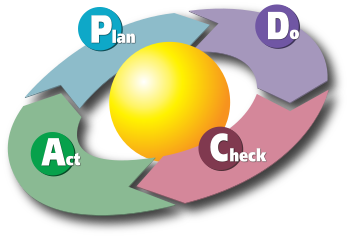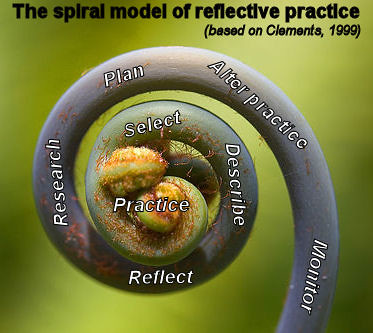I was asked to create a blog where I identify and evaluate two contemporary issues or trends that are influencing or shaping NZ or international education which I find most relevant to my practice.
I will elaborate in my own words how I would address those issues or trends in my context within my learning community or professional context.
Issue 1: The need for a new and robust Computer Science Curriculum -
CS + X?
The main problem of CS is one of image. For many staff and parents who may be ignorant of recent ICT developments, they may perceive CS as gloried typing and use of office apps. Or they may think it is about geeky boys playing games in their bedrooms. But CS is far more pervasive and far more important to the NZ economy.
In this blog: http://google-au.blogspot.co.nz/2014/06/cs-x-whats-your-x.html
In this blog: http://google-au.blogspot.co.nz/2014/06/cs-x-whats-your-x.html
Alan Noble, Engineering Director of Google Australia, basically states the obvious that CS is in everything - so the potential map of interdisciplinary professional connections is almost infinite. The link below in the image caption takes one to an interactive map.
 |
| Science is a complex business, as this map of journal cross-citations (click link for interactive map) shows. Each node represents a subdiscipline and the lines represent the strength of similarity between the nodes. Image: Rafols, I et al., Science overlay maps (taken from: https://www.newscientist.com/article/mg20928002-100-open-your-mind-to-interdisciplinary-research/ ) |
A recent article in New Scientist did a better job than I could to map the multitude of interdisciplinary nodes with an interactive map: (see https://www.newscientist.com/article/mg20928002-100-open-your-mind-to-interdisciplinary-research/ )
How I would hope to support the adoption of CS if to work with other departments in school to create project based learning in a multi-disciplinary way in schools. Some ideas off the top of my head - these could be a combination of :
- Music, Science & CS to understand sound, create digital instruments and to perform. Or to data log and represent the biometric physiological responses to music.
- Or English, Drama and Digital Media to create virtual sets and to record a dramatic short film using media studies and computing.
- Or Art and Programming.to explore the creation of generative art using programatic structures, e.g. art from code.
- Or Languages / Social Sciences and coding to create learning apps to revise vocab or do formative testing of knowledge.
- Or PE with GPS gaming with orienteering
Obviously if I can get SLT support and buy-in from other staff then they could probably create a whole raft of ideas. The process then would be for us to use design thinking and involve the students in the process to co-construct the projects. It is important that the subjects are "integrated where they are relevant and useful" (Ryan K, 2015)
The issue needs to include teachers from other subjects and painlessly introduce them to Computational Thinking in ways which they can see the benefit to them and their students. The CAS (Computing at school) have published a guide to Computational Thinking and Google has made an online short course
The position of the Digital Technology as a seperate subject is well discussed in the online podcast with Prof Tim Bell and Radio New Zealand: http://www.curiousminds.nz/discover/article/6/4/review-of-digital-technologies which states
"The education system has failed to recognise its importance and value to the NZ Economy. Currently there is no requirement to teach it. They say the place of digital technology in schools is adhoc and reliant on interested teachers who get little or no professional support."
Issue 2: The lack of students from minorities taking STEM
Promoting STEM via my work at The Mind Lab by Unitec. I actively promote STEM and coding to all of the students (especially girls) so that they can see it is a fun and interesting career. I use resources such as Code.org Hour of Code videos and activities. At SBC I have been keen to point out the similarities from US studies which note the lack of Hispanic and African American students studying STEM & CS at University level to the NZ lack of Maori and Pacifika students studying STEM, CS and Engineering.
I supported students engaging with the Awhina programme from VUW (http://www.victoria.ac.nz/science/Awhina/) which models Science and technology courses as viable career pathways, helping and mentoring students from Maori and Pacifika backgrounds. I have also encouraged a group of high school students to attend the Weltec Vex robotics clubs and competitions.
Issue 3: The no. of qualified digital technology teachers in NZ - Supply / Demand
Hopefully the universities (with Ministry support) will create teacher training programmes which address the skills and knowledge required to deliver the new digital technology curriculum, as is being done in the UK - where it is positioned as a compulsory core subject for schools.
Teaching salaries are far less than those that can be gained by those with a Computer Science degree via industry. In the UK they have created bursaries of $40,000 for CS graduates however they have far too few, meeting less than 70% of their target. (Jones, M. 2014).
I cannot effect much change here. Through my work at The Mind Lab by Unitec I have supported postgraduate teachers in their learning how to use new digital and collaborative tools. It is a shame that this is merely approximately one hour per week. Whilst teachers may cascade this learning back to their own schools it will not address the current need to develop staff at a senior level.
I have been a vocal advocate for change in SBC and have promoted the Postgraduate Certificate in Applied Practice (Digital and Collaborative Learning). Unfortunately many of the staff who are keen to develop themselves are already committed to either Catholic or Maori studies.
References:
Ryan, K, (April 17, 2005) Review of teaching of digital tech in schools, Radio Zealand podcast. Retrieved from http://www.radionz.co.nz/national/programmes/ninetonoon/audio/20174948/review-of-teaching-of-digital-tech-in-schools







